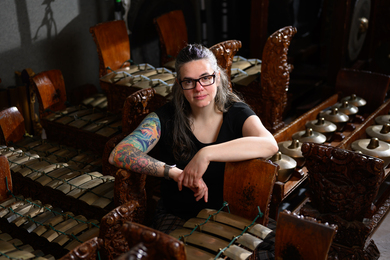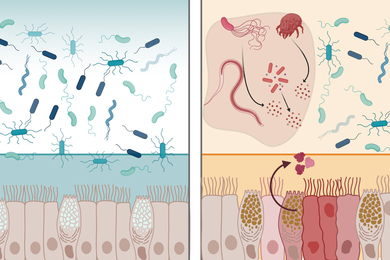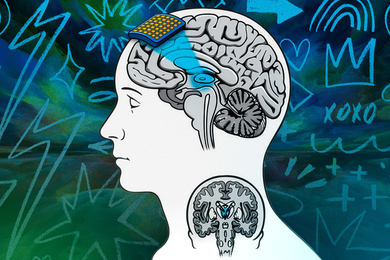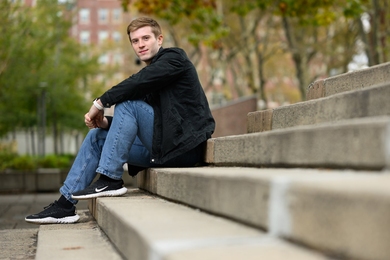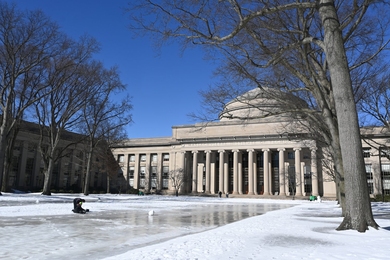
Ultra-cold forms of matter and recent advances in that field were the focus of Nobel laureate Wolfgang Ketterle's Killian Lecture on March 15. His talk, 'When Freezing Cold Is Not Cold Enough,' described work that opens a new door to the quantum world where particles behave as waves and 'march in lockstep.' Ketterle shared the Nobel Prize in physics in 2001 with two MIT alumni for their discovery of the Bose-Einstein condensate, a new form of matter that exists only at ultra-cold temperatures. The slide behind Ketterle shows on the left a single Bose-Einstein condensate that, on the right, is cut into two pieces using a laser beam. The Killian Lecture is given each year by the winner of the James R. Killian Jr. Faculty Achievement Award. Ketterle was named the 2004-2005 recipient last May. Photo / Donna Coveney
A version of this article appeared in MIT Tech Talk on March 30, 2005 (download PDF).
